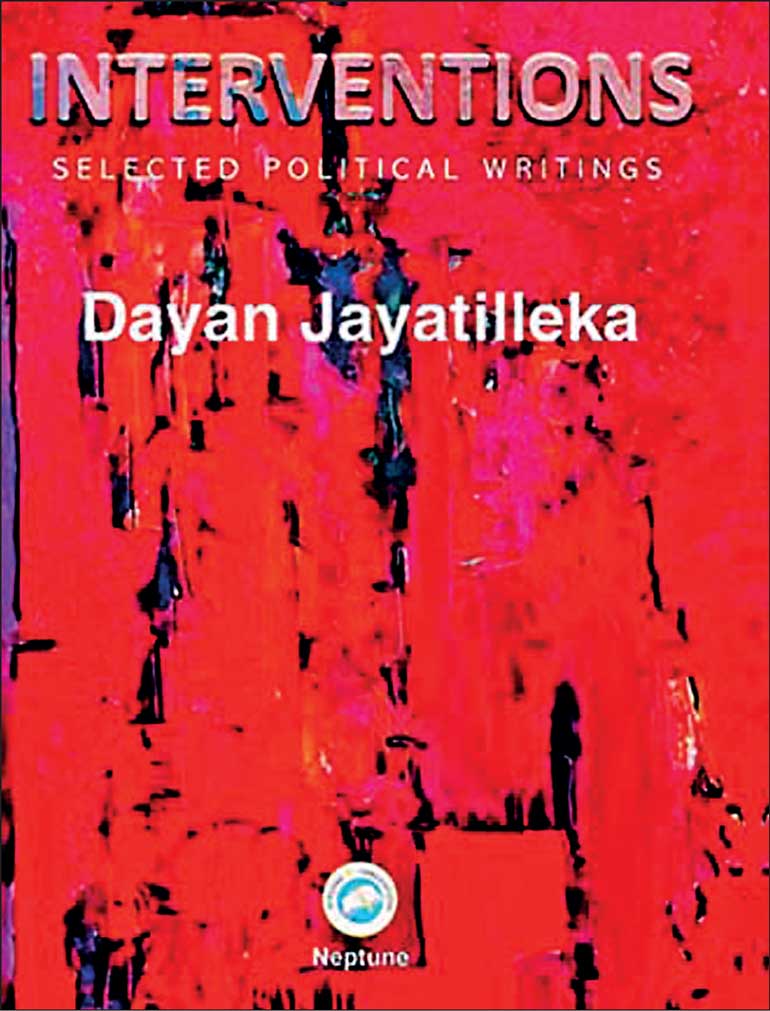Thursday Feb 26, 2026
Thursday Feb 26, 2026
Wednesday, 5 June 2024 00:24 - - {{hitsCtrl.values.hits}}
 British philosopher and historian Perry Anderson defines Western Marxism as the product of defeat. Unlike in the Soviet Union and China, there were no successful Marxist revolutions in the West. The Western Marxist is then a vanquished and disenchanted figure. Never having known the taste and trials of success, the Western Marxist reduces socialism to an abstract ideal and an impotent exercise in scholasticism.
British philosopher and historian Perry Anderson defines Western Marxism as the product of defeat. Unlike in the Soviet Union and China, there were no successful Marxist revolutions in the West. The Western Marxist is then a vanquished and disenchanted figure. Never having known the taste and trials of success, the Western Marxist reduces socialism to an abstract ideal and an impotent exercise in scholasticism.
The theologian and Marxist scholar Roland Boer identifies the “freelance intellectual” as the chief proponent of Western Marxism. In short, the freelance intellectual is the academic, journalist, cultural critic, etc. who purveys a form of Marxist analysis but is, for the most part, independent of the discipline and accountability enforced by membership in a Communist Party or trade union. In China, to be a Communist means to be a Community Party member. In the West, one is free to adopt any label one pleases.
So, what does this have to do with Dayan Jayatilleka? Jayatilleka is not a Western Marxist by any means. On the contrary, much of his work could be classified under the tradition of what Vijay Prashad calls “national liberation Marxism.” Meanwhile, the record of Sri Lankan Marxism is not one of total defeat. Indeed, if you believe what it says on the label, Sri Lanka is a socialist country! And yet, the fact is that political Marxism in Sri Lanka was decimated in the 1980s. Much of this decimation occurred not through repression from the Right but through fratricide within the Left—a process in which Jayatilleka himself was a key player.
As in other countries, the decimation of the Left sent many petty bourgeois intellectuals fleeing for cover. In his colourful career, Jayatilleka has gone from Marxist revolutionary to working in academia, NGOs, state-run thinktanks, journalism, and diplomacy. Throughout this time, he has produced a prolific volume of interventions in the forms of opinion articles, essays, and papers.
In early May, a collection of Jayatilleka’s articles edited by Uditha Devapriya and Uthpala Wijesuriya was published. Interventions: Selected Political Writings is divided into three sections. The first part focuses on domestic Sri Lankan politics, the second part on foreign affairs and international relations, and the third part consists of personal and critical reflections. It would be impossible to cover in a single review the breadth of topics collected in this volume. Instead, it may be more useful to focus on a handful of interventions that engage with Marxism and the Left movement in Sri Lanka, as they provide a lens with which to evaluate Jayatilleka’s methodology and recurrent themes.
 Where Jayatilleka lays his cards on the table
Where Jayatilleka lays his cards on the table
Sins of the Fathers: The Old Left’s Two Traditions is a useful entry point, as it was first published in 2023, and it is where Jayatilleka lays his cards on the table. He identifies himself as a product of the “Old New Left”—the New Left before its turn towards post-modernism and scholasticism. In this article, Jayatilleka makes a distinction between the two tendencies of the Old Left: Samasamajism (Trotskyism) and Communism (Marxism-Leninism). He faults the Samasamajist tradition with sectarianism and failure to situate its praxis in the continuum of national liberation struggles waged by figures such as Weera Puran Apu. In contrast, he argues that the Communist tradition was firmly rooted in patriotism while also linking its membership to an internationalist network of revolutionaries and actually existing socialism.
He points out that it is the Communist tradition that had sufficient fire in its belly to produce armed revolutionary movements such as the JVP on the one hand, as well as “tougher-minded” intellectuals such as Newton Gunasinghe and G.V.S. De Silva on the other. Implicit in this intervention is that Jayatilleka, despite now calling himself a social democrat, places himself within the Communist tradition, its intellectual pantheon, and historical legacy.
In The History and Politics of the Debate, Jayatilleka outlines his perspective on the context of the Jathika Chinthanaya debates that rocked Sri Lanka’s radical intelligentsia. Writing in 1990, he situates the first round of debates in the context of the aftermath of the 1983 anti-Tamil pogroms. He situates the second round of debates in the post-JVP, post-IPKF milieu of the late 1980s. Despite being a proponent of United Front politics, Jayatilleka here draws a clear line against including the Jathika Chinthanites in an anti-UNP coalition, calling them reactionary, obscurantist, and chauvinist.
Jayatilleka sees no originality in Nalin De Silva’s critiques of Marxism. He argues that formations such as Jathika Chinthanaya are inevitable in a society where colonial capitalism causes the disintegration of traditional society. He compares Jathika Chinthanaya to the reactionary feudal and petty bourgeois forms of socialism that Marx and Engels identified in the Communist Manifesto. The framing of Jathika Chinthanaya as a form of non-Marxist socialism is intriguing and opens up new angles of inquiry, though it is left underdeveloped. Jayatilleka identifies these debates as a crucial ideological conjuncture, and faults the Left with failing to throw up a stronger fight.
In Marxism and the Millenium, Jayatilleka offers a spirited defence of the enduring relevance of Marxism while situating the October Revolution of 1917 as the defining moment that ties together the 19th and 20th centuries. What’s notable about this piece is that it was published in 1999, just a few years after the collapse of the Soviet Union and the rise of the unipolar moment. European Communist parties had disbanded, Cuba was going through a “Special Period” of immense economic hardship due to the loss of its main trade partner, and China and Vietnam were in the throes of market reform. Yet Jayatilleka’s tone here is defiant and optimistic.
Marxism, a “philosophy and theory of contradiction and struggle”
Defining Marxism as a “philosophy and theory of contradiction and struggle” and “the organic political philosophy of the working classes and oppressed peoples of the world,” he argues for the relevance of Marxism amid the upsurge of ethno-nationalist and post-modernist trends. He posits Che Guevara and Amilcar Cabral as “the two legs that contemporary Marxists have to walk on.” He identifies imperialism (i.e., US unipolar hegemony) as the primary contradiction and advocates for a “global anti-hegemonic alliance” on the international level and the “broadest possible anti-comprador united front” at the national level. This analysis and prescription remain relevant and correct even today.
One of the last interventions in the volume is Comrade Shan: The Long March, a tribute to the leader of the Ceylon Communist Party (Maoist), N. Sanmugathasan. Jayatilleka asserts that Shan was not a “leftist” or a “progressive” but a Communist—a distinction that needs repeating today with the rise of career rights activists, social entrepreneurs, and, of course, freelance intellectuals. Yet Jayatilleka’s assessment of Shan is far from hagiographic. He notes that Shan’s wing of the divided Communist Party was one of the few Maoist factions in the world that managed to win over the loyalty of the main Communist trade union. It contained within itself the “raw material” for revolution, from urban and estate workers to rural Sinhala students and peasants to oppressed castes in the North. And yet, Jayatilleka concedes that Shan’s party died before him, due to Shan’s own dogmatism, lack of creativity, and “blinkered fundamentalism.” Jayatilleka’s assessment of Shan recalls Mao’s assessment of Stalin (and later, Deng Xiaoping’s assessment of Mao): 70% right, 30% wrong. The intervention is a bitter-sweet reflection on one of the most remarkable individuals in the history of the Sri Lankan Communist movement.
Future readers of this book, particularly those not well versed in Sri Lankan political history, may find it difficult to contextualise Jayatilleka’s interventions. Many of the works in this volume are highly polemical and situated in very specific historical conjunctures. For the most part, Jayatilleka rarely sets out to develop a general theory of anything. For him, theory is a weapon of intervention. As each article in this volume ends with its date and place of publication, it is left up to the reader to figure out what Jayatilleka was trying to accomplish at that particular conjuncture.
There is a popular critique of Jayatilleka that portrays him as a political chameleon. Someone who is able to fish a quote out of the depths of the Collected Works of Lenin to justify any position. Rather than accepting or refuting this critique, it may be more useful to situate Jayatilleka’s methodology in his political tradition. The Marxist-Leninist tradition has a tendency to view itself as being above the bourgeois distinctions of Left and Right. Stalin, for example, argued that Rightists and ultra-Leftists, “are actually twins.” Put another way, Marxism-Leninism is its own golden mean, or middle path.
This seems to inform Jayatilleka’s methodology. It allows him to deride Sinhala Buddhist nationalism as obscurantist and chauvinist in one conjuncture, while also deriding the low-country English-speaking elite as rootless cosmopolitans in another. Jayatilleka’s polemics are often rhetorically framed as attempts to contain the excesses of right-wing and left-wing deviations. As a freelance intellectual, he is his own golden mean. Interventions is therefore a collection of the “Jayatilleka line” on political events in Sri Lanka and the world over the past decades.
If there is one consistent theme in Interventions, it is the necessity of waging ideological struggle. As Jayatilleka himself notes, “that force which abdicates the ideological struggle also loses the political.” Interventions provides a thought-provoking historical narrative of Sri Lanka’s political crises and accompanying ideological struggles since the 1980s. The narrator may be unreliable, but the fact that Jayatilleka continues to intervene at the present conjuncture is not a bad thing but a good thing.